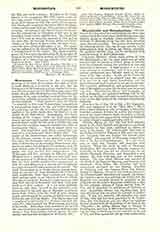

Monomotapa .—Whatever be the etymological meaning of the word Monomotapa, the origin of which is much disputed, it is certain, at any rate, that the Portuguese of the sixteenth century employed it to denote the paramount chief of the Makaranga, a powerful South African tribe dwelling between the Zambesi and Limpopo rivers and extending westward from the Indian Ocean probably as far as the twenty-fifth parallel of east longitude. “Some interest”, says Mr. Theal, “is attached to this word Monomotapa, inasmuch as it was placed on maps of the day as if it were the name of a territory, not the title of a ruler, and soon it was applied to the entire region from the Zambesi to the mouth of the Fish River. Geographers, who knew nothing of the country, wrote the word upon their charts, and one copied another until the belief became general that a people far advanced in civilization, and governed by a mighty emperor, occupied the whole of southeastern Africa…. Such an empire never existed. The foundation upon which imagination constructed it is nothing more than a Bantu tribe.” The empire of the Monomotapa was called Mokaranga. In the fifteenth century, it was united and powerful, but, when the Portuguese arrived in 1505, it was in a state of disruption, as the reigning Monomotapa, Makomba by name, had delegated his authority over the more distant parts of his dominions to members of his family who soon asserted their independence. The Makaranga still live scattered in different parts of Rhodesia over a territory which was once their own. In the matter of civilization they never had much to lose, but their warlike qualities have disappeared, so that the word Makaranga is used by their neighbors as a term of reproach and a synonym for coward. The word Monomotapa is no longer known among them. They are, at any rate, more intelligent and docile than their neighbors, while their features and many of their customs point to an infusion of Semitic blood. The theory has lately obtained in some quarters, that they built the Great Zimbabwe and other ruins scattered over their country. It is far more probable, however, that these, as well as the numerous rock-mines found in the gold area of Rhodesia and Portuguese East Africa, were the work of some Semitic people who occupied the country as gold seekers long before the arrival of the Bantu. The Makaranga were evangelized in 1561 by the Ven. Father Goncalo da Silveira, S.J., who baptized the Monomotapa and many of his people. But within three months of his arrival the converted chief, instigated by some Mohammedan refugees from Mozambique, turned against the missionary and had him strangled on March 16, 1561.
JAMES KENDAL

